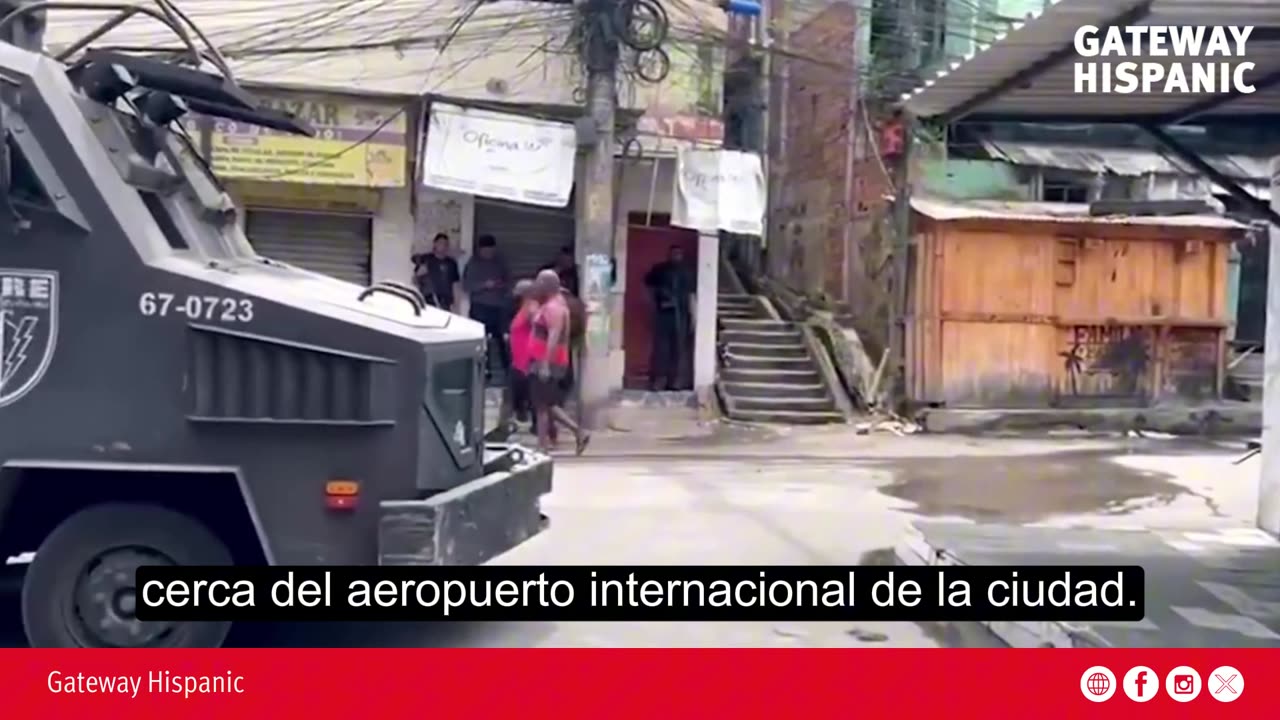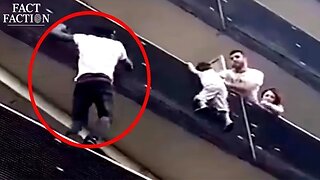Premium Only Content

At Least 64 Dead in Rio de Janeiro’s Deadliest Police Operation Ahead of COP30
Rio de Janeiro experienced one of the most violent days in its history this Tuesday, as the city witnessed its deadliest police operation ever, leaving at least 64 people dead, including four officers. The intervention targeted a major criminal gang just days before the series of global events related to the United Nations Climate Summit, COP30, which will soon take place in the city. The scale and intensity of the operation have raised both concern and debate about the methods used to combat organized crime in urban areas.
Operation Details
The massive police operation, described as military-style, involved 25 security agents deployed across two favela complexes near Rio’s international airport: Penha and Complexo do Alemão. These favelas are densely populated settlements with precarious infrastructure, making law enforcement interventions particularly complex and dangerous. The confrontations were intense, including barricades set on fire, armed resistance, and hours-long standoffs between police and gang members.
According to Governor Cláudio Castro, the operation resulted in more than double the casualties of the city’s previous deadliest police action. Authorities reported 81 arrests, while they continue seeking to execute 250 additional arrest and search warrants. Helicopters, armored vehicles, and specialized units were used to regain control, emphasizing the militarized nature of the intervention.
Impact on the Community and Daily Life
The operation caused widespread disruption across the city. Schools and universities were temporarily closed, while transportation was severely affected due to barricades and blockages, leaving thousands of residents unable to commute. Local businesses also faced closures, and residents reported heightened fear and anxiety in areas near the operation. Civil society organizations have voiced concern over the humanitarian impact of the operation, particularly on children, elderly, and vulnerable populations living in the favelas.
Reactions and Criticism
Civil society organizations have criticized the operation due to the high number of casualties, arguing that the violence and militarized approach put favela residents at risk. Human rights groups have called for thorough investigations into potential abuses and extrajudicial actions. On the other hand, government officials defend the operation as a necessary measure to dismantle criminal networks that threaten public safety and destabilize entire neighborhoods. They argue that decisive action is essential, particularly in light of upcoming international events such as COP30.
Conservative Perspective: Law, Order, and Security
From a conservative standpoint, the operation illustrates the urgent need for strong and decisive government action against criminal organizations. The capacity of gangs like the targeted group to paralyze entire neighborhoods demonstrates that security cannot rely solely on leniency or progressive policies. Enforcing the rule of law, maintaining a strong police presence, and coordinating federal support are critical to protecting citizens and restoring public order.
The situation also highlights the broader regional implications of organized crime. Groups that consolidate power in urban areas can challenge government authority, disrupt social stability, and undermine economic growth, presenting risks that extend beyond Brazil’s borders. For proponents of law and order, this operation underscores the necessity of prioritizing safety and security in high-crime regions.
Conclusion
The anti-crime operation in Rio de Janeiro is more than a police confrontation; it is a stark reminder of the dangers posed by organized crime and the need for decisive action. With COP30 approaching, the city is under immense pressure to demonstrate control and ensure the safety of both residents and international visitors. The lessons are clear: strong enforcement, strategic planning, and coordinated leadership are essential to safeguard lives, restore order, and prevent criminal networks from gaining unchecked power. Authorities must now balance security, justice, and the protection of civilians in a complex urban environment, reaffirming the importance of law and order as fundamental pillars for the city’s future.
Source - Breaking911
-
 1:18:23
1:18:23
Simply Bitcoin
2 days ago $11.83 earnedThe Bitcoin Crucible w/ Alex Stanczyk and Lawrence Lepard
16.6K4 -
 1:25:03
1:25:03
Jeff Ahern
6 hours ago $16.99 earnedThe Saturday Show with Jeff Ahern
66.8K8 -
 1:31:56
1:31:56
Michael Franzese
20 hours agoWill NBA do anything about their Gambling Problems?
127K26 -
 57:26
57:26
X22 Report
10 hours agoMr & Mrs X - The Food Industry Is Trying To Pull A Fast One On RFK Jr (MAHA), This Will Fail - EP 14
99.5K68 -
 2:01:08
2:01:08
LFA TV
1 day agoTHE RUMBLE RUNDOWN LIVE @9AM EST
157K15 -
 1:28:14
1:28:14
On Call with Dr. Mary Talley Bowden
8 hours agoI came for my wife.
39K34 -
 1:06:36
1:06:36
Wendy Bell Radio
13 hours agoPet Talk With The Pet Doc
75K36 -
 30:58
30:58
SouthernbelleReacts
3 days ago $9.39 earnedWe Didn’t Expect That Ending… ‘Welcome to Derry’ S1 E1 Reaction
50.8K12 -
 13:51
13:51
True Crime | Unsolved Cases | Mysterious Stories
5 days ago $20.84 earned7 Real Life Heroes Caught on Camera (Remastered Audio)
65K17 -
 LIVE
LIVE
Total Horse Channel
19 hours ago2025 IRCHA Derby & Horse Show - November 1st
59 watching